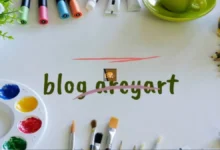The Complex Story of Daphne Abdela

Daphne Abdela’s name remains haunting in the annals of crime history, stirring emotions and debates even decades later. Her story is one of tragedy, privilege, and poor decisions, which together paint a complex portrait of a life that could have been much different. Understanding the case of Daphne Abdela requires exploring not just the events that led to her infamy but also the social and psychological elements that shaped her actions and consequences.
The Background That Shaped a Troubled Teenager
Daphne Abdela was born into a life of privilege in New York City, surrounded by opportunities many could only dream of. Her family’s wealth ensured she grew up in an affluent environment, but this comfort did not guarantee a happy or stable childhood. Many who knew her described Daphne Abdela as someone who struggled to fit in despite her privileged upbringing.
By her teenage years, it was evident that Daphne Abdela was seeking a sense of belonging. She became involved with a circle of friends that influenced her troublingly, leading her down a path of rebellion and risky behavior. Despite her family’s efforts, they couldn’t prevent her from falling into a destructive lifestyle. This rebellion set the stage for the shocking events that would make her a household name.
Daphne Abdela’s early life reminds us that privilege does not shield individuals from emotional struggles or poor choices. The underlying pressures of fitting into a high-society world may have added to her frustrations, pushing her toward decisions that would ultimately alter her life forever.
A Fateful Night That Changed Everything
The events of the night in question remain chilling to this day. Daphne Abdela, along with her then-boyfriend Christopher Vasquez, was involved in the murder of Michael McMorrow, a 44-year-old man, in Central Park. This gruesome incident shocked the nation and forever associated Daphne Abdela’s name with tragedy.
Accounts of that night describe a senseless act of violence. Daphne Abdela and Vasquez reportedly lured McMorrow under pretenses before attacking him. The brutality of the crime was staggering, leaving investigators and the public horrified. The question on everyone’s mind was, why would a teenager from such a privileged background commit such a heinous act?
Many theories arose, from peer pressure to mental instability. Regardless of the motives, the consequences were severe. The case became a media spectacle, with every detail of Daphne Abdela’s life scrutinized. Her name became synonymous with the dangers of unchecked privilege and adolescent recklessness.
The Role of Media in Shaping Perceptions
The case of Daphne Abdela unfolded during a particularly sensationalist media period. Newspapers and television channels eagerly covered every aspect of the trial, turning Daphne Abdela into a public figure almost overnight. While this exposure brought attention to the crime, it also raised questions about the fairness of such intense scrutiny.
The media often focused on Daphne Abdela’s affluent background, painting her as a symbol of wasted privilege. Headlines referred to her as a “killer rich kid,” a label that stuck and influenced public opinion. This narrative often overshadowed deeper discussions about the psychological and social factors contributing to her actions.
The media’s portrayal of Daphne Abdela simplified a complex situation in many ways. Reducing her to a caricature of privilege gone wrong ignored the nuanced realities of her life. This oversimplification may have done more harm than good, perpetuating stereotypes rather than fostering understanding.
The Trial and Its Aftermath
Daphne Abdela’s trial was dramatic, drawing attention from legal experts and casual observers alike. The prosecution painted her as a manipulative and dangerous individual, while the defense sought to portray her as a troubled teenager who made a grave mistake. Both sides presented compelling arguments, making the trial a focal point of national interest.
Ultimately, Daphne Abdela was convicted and sentenced for her role in the crime. The verdict was met with mixed reactions. Some felt justice had been served, while others believed the punishment was too lenient given the severity of the crime. The case also sparked debates about the criminal justice system’s handling of juvenile offenders, particularly those from privileged backgrounds.
In the years following the trial, she name continued to surface in discussions about crime, privilege, and rehabilitation. Her case remains a reference point for examining how society treats young offenders, especially those with wealth and influence.
Psychological Factors at Play
Understanding Daphne Abdela’s actions requires delving into the psychological aspects of her behavior. Many experts have suggested that her troubled adolescence played a significant role in shaping her decisions. Issues such as low self-esteem, a desire for validation, and susceptibility to peer pressure likely contributed to her involvement in the crime.
It’s also worth considering the impact of her privileged upbringing. While wealth can provide opportunities, it can also create pressures and unrealistic expectations. For she, this environment may have fostered a sense of entitlement while simultaneously leaving her emotionally unprepared for real-world challenges.
This combination of factors highlights the importance of addressing mental health and emotional well-being, particularly in young people. Daphne Abdela’s story serves as a cautionary tale about the dangers of ignoring these critical issues.
Lessons Learned from the Case of Daphne Abdela
The tragic story of Daphne Abdela offers several lessons for society. First and foremost, it underscores the need for early intervention in the lives of troubled youth. Identifying and addressing issues such as emotional instability, poor peer influence, and risky behavior can prevent future tragedies.
Secondly, the case highlights the role of privilege in shaping perceptions of crime and punishment. Daphne Abdela’s background undoubtedly influenced how the media and the public viewed her actions. This bias raises essential questions about equity and fairness in the criminal justice system.
Finally, the story reminds us of the importance of empathy and understanding. While it’s easy to condemn she for her actions, it’s also crucial to consider the circumstances that led to them. By taking a more nuanced approach, we can better address the root causes of such behavior and work toward preventing similar incidents in the future.
Reflections on Privilege and Responsibility
Daphne Abdela’s case is a stark reminder that privilege comes with responsibilities. Despite her wealth and opportunities, she made choices that led to devastating consequences. Her story challenges us to consider how society can better guide privileged youth to use their advantages responsibly.
This reflection extends beyond she herself. It calls on parents, educators, and community leaders to play a more active role in shaping young people’s values and decision-making skills. By fostering a sense of accountability and empathy, we can help ensure privilege is used as a force for good rather than a shield for poor behavior.
Rehabilitation and Redemption: Is It Possible?
One of the most debated aspects of she story is whether she deserves a chance at redemption. While her actions were undeniably heinous, some argue that her young age at the time of the crime warrants an opportunity for rehabilitation.
Rehabilitation is a complex process that requires both personal commitment and societal support. For Daphne Abdela, this means taking responsibility for her actions while addressing the underlying issues that contributed to her behavior. It’s a challenging journey that could offer hope for a better future.
The possibility of redemption also raises broader questions about how society views and treats offenders. Are we willing to give individuals like Daphne Abdela a second chance, or are we too focused on punishment to consider rehabilitation? These questions remain central to ongoing debates about justice and morality.
The Enduring Legacy of Daphne Abdela
Decades after the crime, she name evokes strong emotions. Her story reminds us of the fragility of youth and the devastating consequences of poor choices. It also serves as a call to action for society to address the root causes of such tragedies.
While actions can never be excused, they offer valuable lessons about privilege, responsibility, and empathy. By learning from her story, we can work toward creating a society that supports young people and prevents similar tragedies in the future.
In the end, Daphne Abdela’s legacy is not just one of infamy but also of reflection and the potential for change. Her story challenges us to look beyond the surface and consider the deeper factors that shape human behavior, reminding us of the complexities of crime, punishment, and redemption.
FAQs About Daphne Abdela
What crime did Daphne Abdela commit?
she, along with Christopher Vasquez, was convicted for the murder of Michael McMorrow in Central Park. The crime involved luring McMorrow under false pretenses before attacking him, an act that drew widespread media attention.
Why did Daphne Abdela commit the crime?
The exact motives remain unclear, but theories suggest a combination of peer pressure, emotional instability, and the influence of a troubled adolescent phase. Her privileged upbringing and desire to fit in with a rebellious crowd likely played a role
What was Daphne Abdela’s sentence?
she was convicted and sentenced for her role in the murder. Details about the exact length of her sentence have been widely discussed but are often overshadowed by debates about the justice system’s handling of privileged juvenile offenders.
How did the media portray Daphne Abdela?
The media sensationalized the case, often focusing on Daphne Abdela’s affluent background and labeling her as a “killer rich kid.” This portrayal influenced public opinion and raised questions about media bias in criminal cases.
Has Daphne Abdela shown remorse for her actions?
There have been mixed reports about Daphne Abdela’s expressions of remorse. While some believe she has taken responsibility for her actions, others question the sincerity of her apologies.





